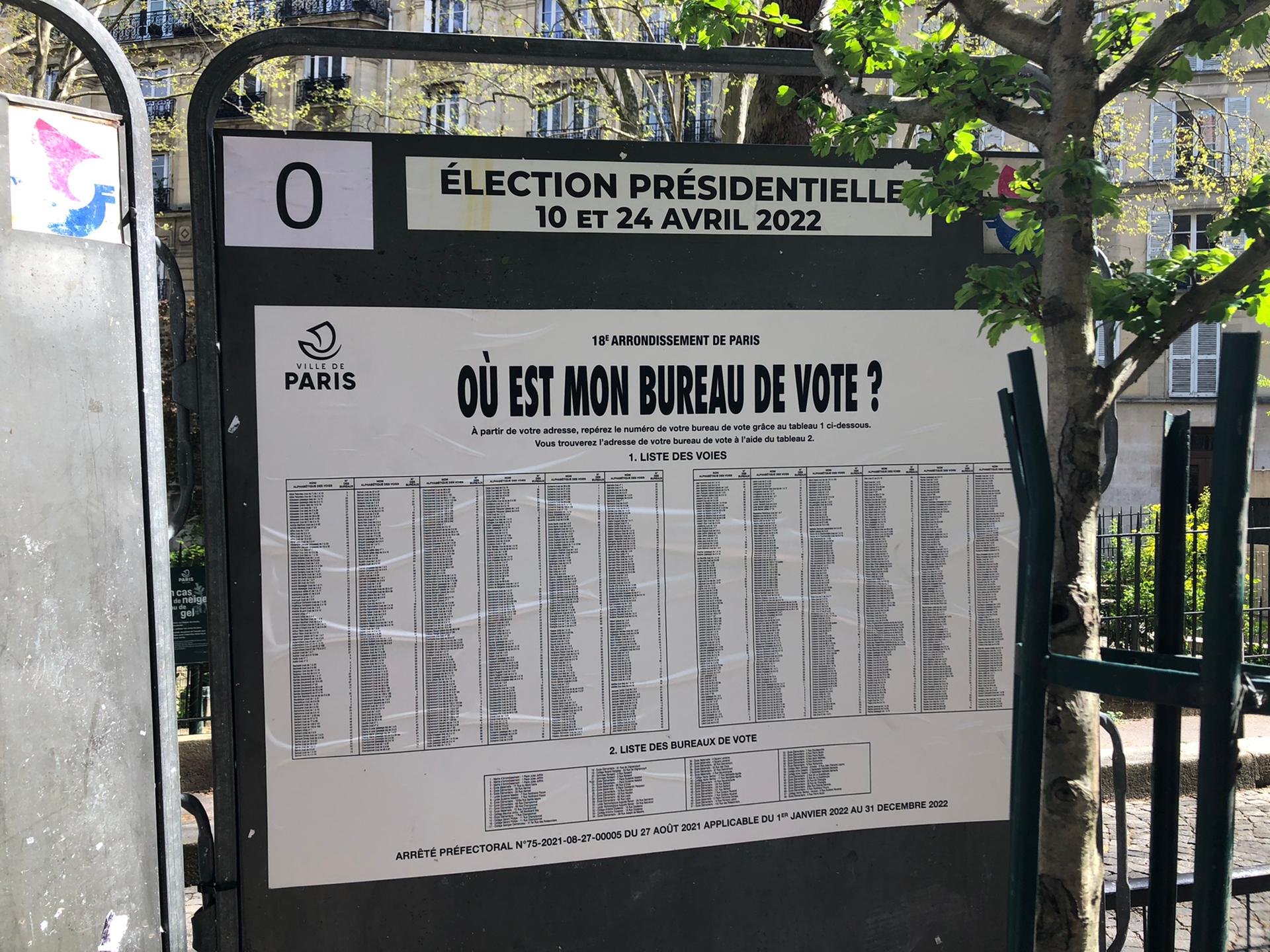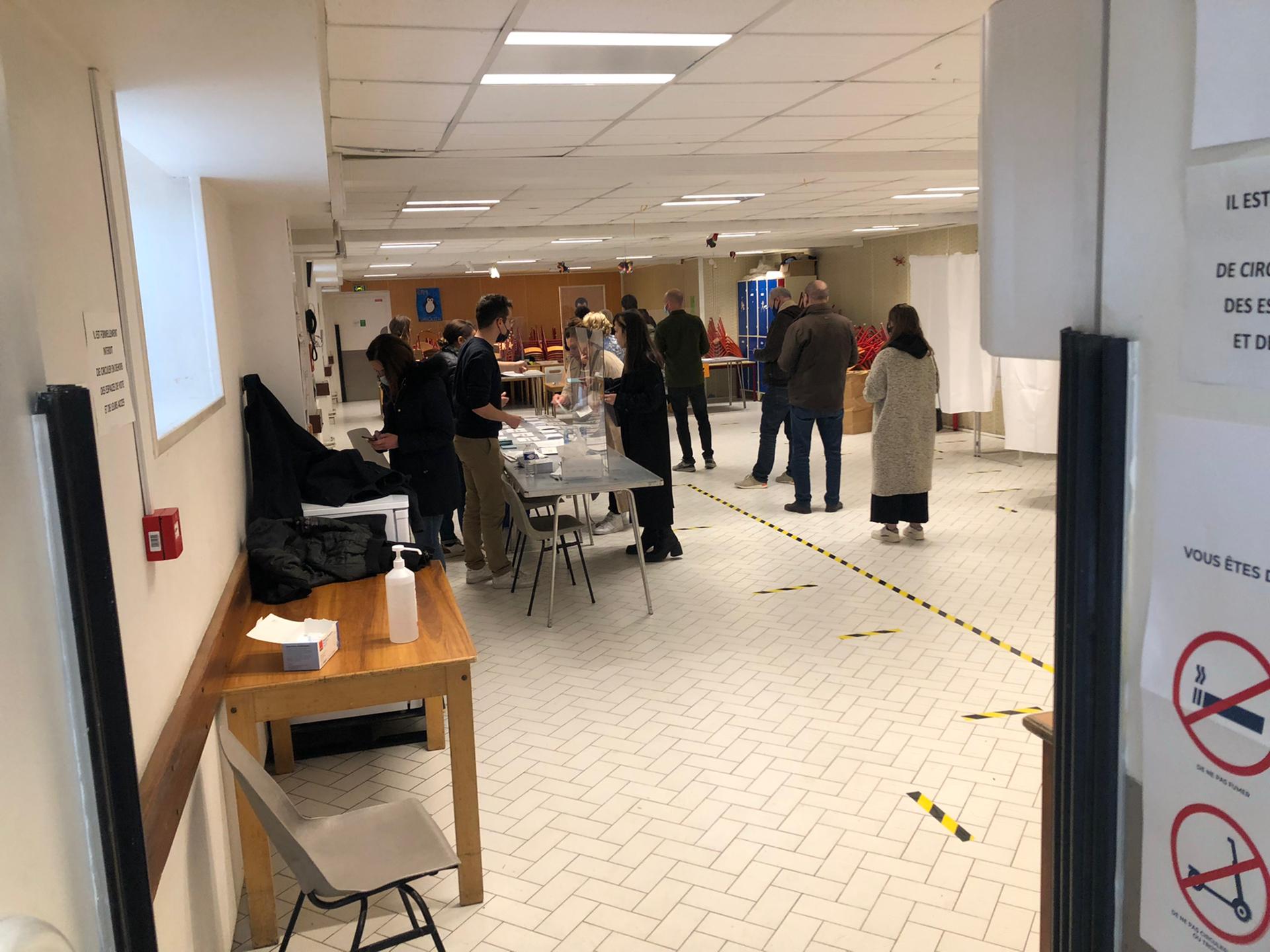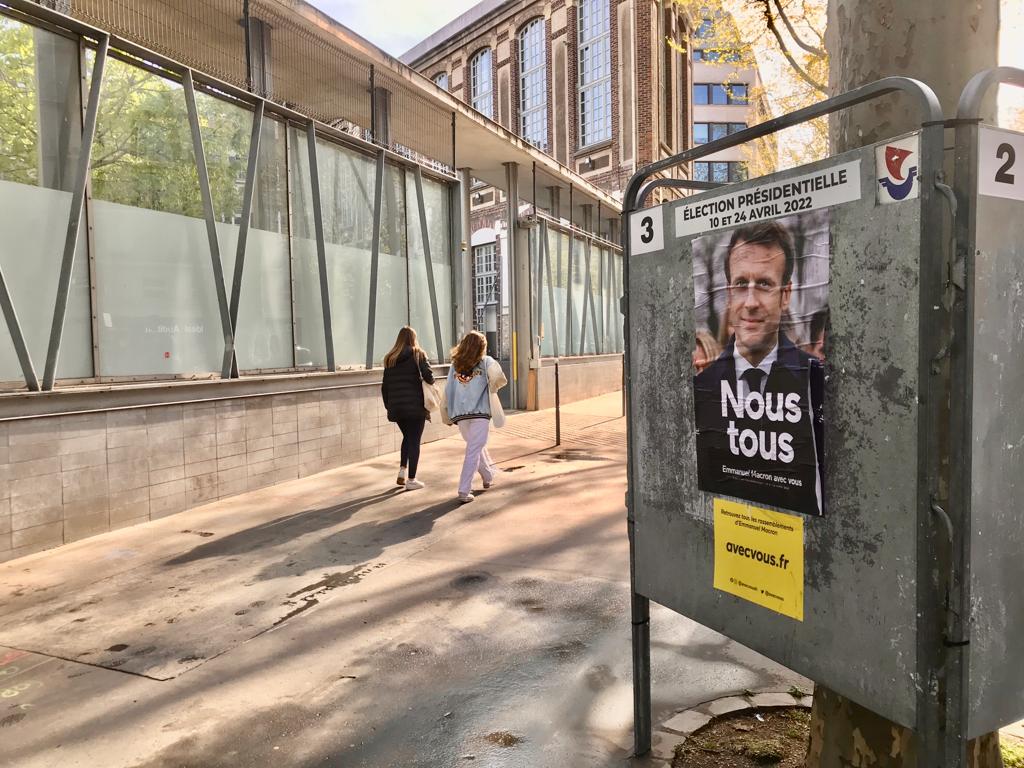On Sunday morning, the polling stations in mainland France opened at 08:00 for the first round of the presidential election, with some 48.8 million people eligible to cast their ballots.
French nationals will be able to choose between 12 candidates for the presidency of the Republic, including the incumbent Emmanuel Macron and the far-right candidate Marine Le Pen, who are favourites in the polls. The gap between both candidates significantly closed, according to recent polls.
The first results will be known after the last voting centres close at 20:00. If no candidate wins over 50% of the vote, the second round of voting will take place on 24 April, but only the two candidates with the most votes qualify for this round.
France: presidential election (first round) today
➤ Polls open: 8 AM — 7 to 8 PM local (6 AM — 5 to 6 PM GMT) ➤ Eligible voters: 48,803,175 ➤ Voting age: 18 ➤ No. of candidates: 12 ➤ Voting system: Two-rounds ➤ Term: 5 years ➤ Exit polls: 8 PM local (6 PM GMT) pic.twitter.com/wqqG8BulBA — Europe Elects (@EuropeElects) April 10, 2022
Citizens with French nationality who live in Belgium — some 67,000 — can take part in the election at various locations across the country, including at the French consulate and the Brussels Expo in the Heysel in Brussels, as well as in Antwerp, Arlon, Charleroi, Waterloo, Ghent, Liège, Mons, Mouscron, Namur, Tournai and Waterloo.

A board with information about polling stations in Paris. Credit: Ugo Realfonzo/ The Brussels Times
A more detailed list of the locations can be found on the French embassy website. According to reports from Bruzz, there were long queues at the Heysel voting station on Sunday morning.
Who are the candidates to watch?
Today's question is who will be the challenger of the current president Emmanuel Macron of the En Marche! party. He remains the most popular candidate, however, Marine Le Pen of the Rassemblement National (formerly known as National Front) has grown in popularity in recent weeks.
Meanwhile, left-populist Jean-Luc Mélenchon (La France Insoumise), who could appeal to the greener voters and those disappointed by the current president, could still surprise during the election on Sunday. A recent Elabe poll found he was nearing the top two candidates, however, the gap remains relatively large.
🇫🇷 Dimanche, la France parle au monde.
🗳 Votez ! #Melenchon2eTour#DimancheJeVoteMelenchon #AlloMelenchon pic.twitter.com/Eebx6Nq57T — Jean-Luc Mélenchon (@JLMelenchon) April 8, 2022
Les Républicains' conservative candidate Valérie Pécresse at one point seemed to be rising in the polls (around the start of this year) but has since sunk again. The same was true for far-right candidate Éric Zemmour, who has since seen many voters leave in the direction of Le Pen.
Predicted outcomes so far
The previous first round of the French presidential election took place on 23 April five years ago, when a runoff was held between the top two candidates, Macron and Le Pen. A second round was organised on 7 May 2017, which Macron won by a decisive margin (66% of the votes).
A recent Elabe poll found that, in the first round of this year's elections, "the gap has never been so close" between Emmanuel Macron (26%, -2) and Marine Le Pen (25%, +2) who "continues her positive momentum."
This was confirmed in a recent survey of voters' intentions and would mark a historic shift in French politics.

Inside a polling station. Credit: Ugo Realfonzo/ The Brussels Times
Le Pen has managed to close the gap between her and the incumbent, mainly due to her campaigning on the declining purchasing power of the French. Her popularity has only increased since the Russian invasion, and due to the continued energy crisis, as she vowed to better protect consumers.
At the time of the Elabe poll, 76% of voters said they are sure of their choice, while 24% stated they could change their mind by Sunday.
Voter turnout expected to drop
The Home Affairs Ministry announced at midday that more than a quarter (25.48%) of eligible voters had already submitted their ballots, which, as expected, is lower than five years ago.
"In 2017, the turnout rate at 12:00 for the first round of the presidential election in metropolitan France was 28.54%. In 2012, this rate was 28.30%," a government statement read.

Defaced election posters in Paris. Voter turnout is expected to be lower than five years ago. Credit: Ugo Realfonzo/ The Brussels Times
The percentage of non-voters is feared to even surpass the mark of 28.4% in 2002, with young people and workers being less inclined to cast their ballot.
Voting started earlier in France's overseas territories to take account of the time difference. In the overseas territories of Oceania, the overall turnout was 28.9%, down by more than 14% since the elections in 2017. In French Polynesia, the rate dropped as much as 20%, down from 43.97% at the same time in the first round in 2017.
The voter turnout at noon in Réunion, voter turnout was 20.7%, up by almost 2% since five years ago, while in French Guiana, Martinique, Guadeloupe and Saint-Pierre-and-Miquelon, the overall turnout at noon was 17.2%, up by 0.9% since 2017.

